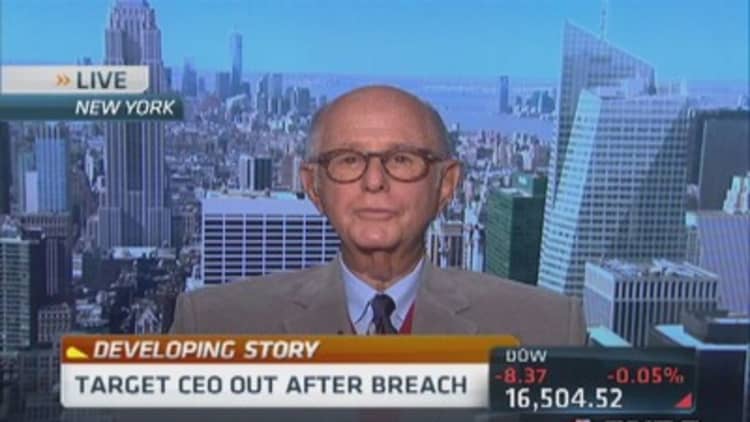As the number of financial advisors in the country continues to dwindle, the relative lack of young people entering the industry has become all the more glaring.
The inability to attract so-called "next-gen" advisors to the business remains a major challenge for an industry facing a growing wave of retiring financial planners over the next two decades.
Solo practitioners without successors aren't the only ones at risk. Advisory firms in all corners of the market eventually will be affected by the looming labor shortage.
"Not enough young people are coming into the industry," said Ric Edelman, chairman and CEO of Edelman Financial, one of the largest registered investment advisor firms in the country. "All advisors see this as an issue in the industry, but they see it as someone else's problem."
There are two sides to the problem. The first is the still unfavorable perception of the industry post-financial crisis—particularly among millennials.
Read MorePassing the advisory baton
"Between [Bernie] Madoff, the Facebook IPO and the financial crisis generally, things have not been good from a P.R. perspective for the financial services industry," said Tom Nally, president of TD Ameritrade Institutional, which serves as custodian for independent registered investment advisors. What's more, young people tend not to distinguish between financial planners and commissioned brokers.
"What financial planners do may be different [from a commissioned broker] but, to a 25-year-old, it seems like nuance," said Joni Youngwirth, managing principal at Commonwealth Financial Network. "A lot of young people perceive the industry as being about making the rich richer, not helping the average family save for their retirement or put their kids through college." And perceptions don't change overnight.
The second half of the problem is convincing advisors and advisory firms to provide a more forgiving and supportive career path for young people who may not be ready to bring in new business to a firm for many years.
"Some people won't admit that what they're really looking for is people to generate new business," said certified financial planner Jon Yankee, co-founder and chief financial officer of FJY Financial. "A 23-year-old won't be able to do that for you."
Yankee's firm, which now manages about $430 million in assets, doesn't compensate young associate advisors for bringing in new business in their first several years with the firm.
"We try to teach young people how to develop financial planning relationships," he said. "As they grow up, they'll develop their business."
Read MoreAdvisors slow to train successors
Other firms across distribution channels have also been changing their approaches with potential next-gen advisor candidates. The wirehouses, for example, have revamped their sink-or-swim training programs to offer more support for new hires and a longer learning curve.
At Merrill Lynch—the training ground for thousands of advisors, including many pioneers of the RIA industry—trainees at the firm now draw a salary for 43 months. They'll have to start producing new business before that, but they get a much more intensive financial training than they did in the past.

"We shifted the overall focus of our program towards goals-based wealth management and on trainees getting their CFP [certified financial planner] designation," said Racquel Oden, head of Merrill's practice management development program. She said the program, which has hired between 1,200 and 1,500 trainees annually since 2008, currently has about a 30 percent success rate with new hires and that the firm is committed to raising that to 50 percent.
The risk of hiring young people, who will typically require at least four to seven years of training before they're ready to be full-fledged advisors, is more daunting for smaller broker-dealers and RIAs.
Custodians, such as TD Ameritrade, are doing their part, funding internship programs for students to work at RIA firms and giving grants to universities to beef up their financial planning departments. But the risk is still high.
Most financial planners are unwilling to make the investment. We're doing it because it's what young people need and it's what our firm needs.Ric Edelmanchairman and CEO of Edelman Financial
"Most financial planners are unwilling to make the investment," said Edelman, who launched his firm more than 25 years ago. "It's expensive, time-consuming and can take years before they see true productivity, with no assurance that the people will stay with them."
While his firm has grown largely thanks to his ability to attract seasoned advisors, Edelman says he's now more willing to invest in developing young advisors within his firm. "Our thinking has evolved on this," he said. "We're now formalizing our structure to provide young people with a clearer path to becoming financial planners.
"We're doing it because it's what young people need and it's what our firm needs."
It's also what the industry needs, industry pundits say.




